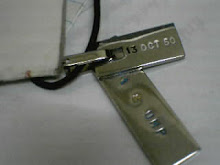The Smart ForTwo is a diminutive vehicle, the smallest car available for sale in the U.S. Powered by a tiny, three cylinder engine, the Daimler AG product seats two people and gets over 40 mpg on gas power.
Since its stateside introduction in January 2008, the Smart ForTwo has sold well, beating Daimler sales estimates for the car. Still, its limited seating arrangement prevents some buyers from choosing the vehicle; storage is a problem too.
Now it appears that Daimler will finally come up with a slightly larger version of the ForTwo. First introduced to the European market in 1998, the ForTwo cannot simply be expanded by adding a rear seat. Instead, Daimler is considering stretching the wheelbase enough to accommodate seating for two rear passengers a move which would put it up against two other popular models: the BMW Isetta and the Audi A1. Neither one of those models is currently sold in the US.
Dubbed the Smart ForTwo+2, the new Smart model would probably have rear hinged doors, a "smart" way to help passengers get in and out without sacrificing limited interior room. Though not officially announced by Daimler yet, automotive enthusiasts are speculating that the slightly larger model would still be powered by its 1.0L three-cylinder engine. A slightly larger powerplant could be offered optionally.
Any changes to the size of the Smart engine would require that the rear housed engine bay be modified accordingly. More than likely Daimler would keep the same engine in place to hold engineering costs down. Daimler sources the Smart engine from Mitsubishi; it isn't known whether the Japanese automaker could supply the company with another powerplant or if Daimler has one of its own.
The US would be a natural market for the expanded ForTwo. Shoppers who test drive the car are pleasantly surprised by the amount of legroom offered. The car is designed to comfortably seat people as tall as 6 feet, 5 inches, therefore that room would need to remain the same before a second seat is added to the car.
The Smart represents a significant part of Daimler's growth going forward. Until recently, Mercedes-Benz has been the main brand for the German automaker, but the Smart allows Daimler to reach out to a different group of buyers. By expanding the Smart line, Daimler can ensure that its influence in this segment expands, perhaps nabbing a future group of Mercedes owners in the process.

